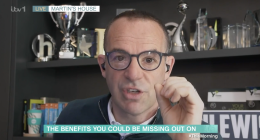GETTING a parking ticket can take a chunk out of anyone’s carefully planned budget.
But there are ways to fight fines and some types have a complaint success rate of nearly half – if you can spot it.
Parking fines are divided into those that are “official” from the local authority or police.
These are called a fixed penalty notice (FPN) or penalty charge notice (PCN).
You’ll get one of these for breaking driving laws or other driving issues like going in a bus lane.
Then there are parking “fines” that are charged on private land, like a supermarket, hospital, or privately owned car park.
These are essentially an invoice from that company and are often called a parking charge notice and they have no official right to fine you.
All they are doing is sending you a notice for what they deem to be a breach of contract.
Understandably, this can cause some confusion, as they sound very similar to an official PCN and look almost the same.
You can challenge any parking ticket, but almost half of disputes over private company invoices are successful according to new data from the parking ombudsman.
There were 58,522 appeals to the Parking on Private Land Appeals (POPLA) service and 23,771 ended up being cancelled.
How to appeal a private parking ticket
You need to go to the company issuing the notice in the first place – this should be on the notice or ticket you get.
This could be from a private car parking firm, supermarket or other firm, but not the council or police (we’ve got more on how to appeal those below).
You’ll need to tell them you’re challenging the fine and why, showing any evidence if you have it. According to Popla this could be:
- A crime reference number if the vehicle was stolen
- Photographs, for instance if you think that the signage was inadequate
- Pay and display voucher, for example, if you say it was displayed and had not expired
- A witness statement
Your evidence can be images, videos or scanned documents but make sure they are copies as originals can’t be returned.
You can use a template from Citizen’s Advice to write to them.
You can take the claim to Popla if the company is part of a trade body called the British Parking Association (BPA).
If the company is part of the International Parking Community (IPC) you can appeal to the Independent Appeals Service.
Both of these are independent services. Unfortunately if the company is not part of these bodies you can’t use the schemes.
You’ll need the number from your original parking notice and your car registration number.
While you appeal, the parking operator may add additional fees for later payment as the notice is not suspended during this time.
These are the most common reasons for appealing:
- The car was stolen
- The car wasn’t improperly parked as stated in the parking notice
- The amount being charged is incorrect
- Extreme circumstances prevented you from complying with parking conditions, for instance a medical emergency or car breakdown
If you are successful you won’t have to pay the fine. If you’re not successful you will have to pay, and this could include late charges too.
If you still don’t pay the company after your appeal is rejected the company can take you to court.
The court can force you to pay the fine plus more money on top if you lose.
You can “pay under protest” and make a small claim to get your money back, but there’s no guarantee and you’ll have to pay a fee.
How to challenge an official parking ticket from the council
If a Penalty Charge Notice was issued by the local council, unless you have grounds to appeal, you should pay up.
Here you have broken the law. The penalty is just that – a genuine penalty or fine – not just a “charge”.
If you do have a compelling, or very persuasive reason for appealing, the council can use its discretion to decide whether to cancel the notice.
First, drivers will have to complain to the council in writing, with any witness statements or photographs included.
If the council accepts your reasons for appealing, your fine will be cancelled and you’ll have nothing to pay.
If the council rejects your reasons, you will be sent a notice. You will then have 28 days to make a formal appeal or the charge could increase.
If your formal appeal is rejected you can then take it to an appeal tribunal. This is free and you can submit it online – you don’t have to attend.
If you’re not successful then you need to pay up and within 28 days and if you don’t the fine could go up.









